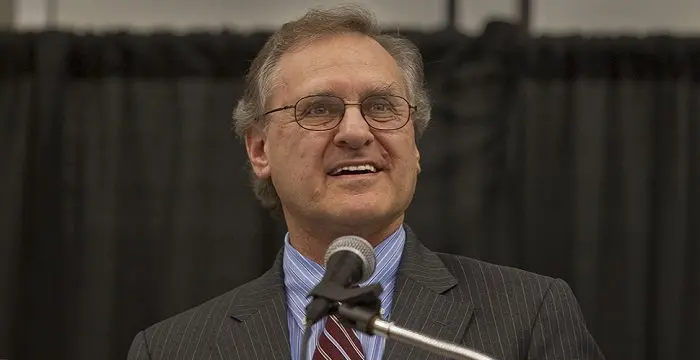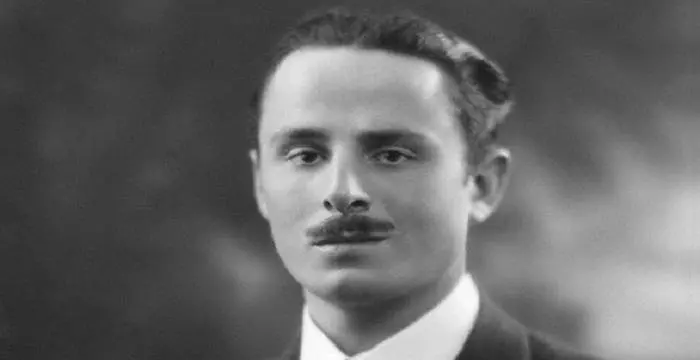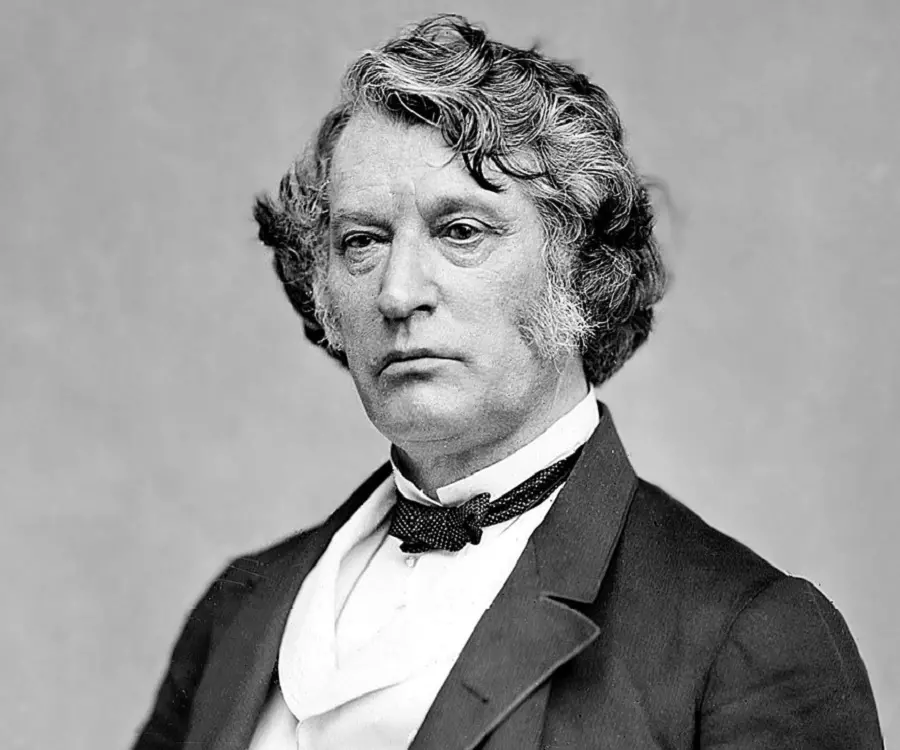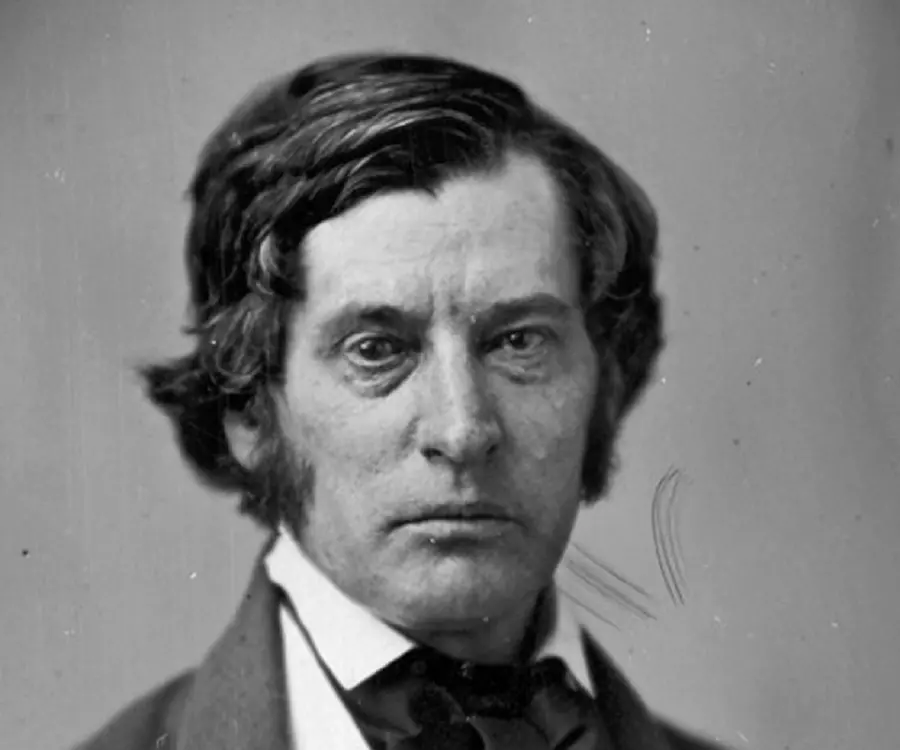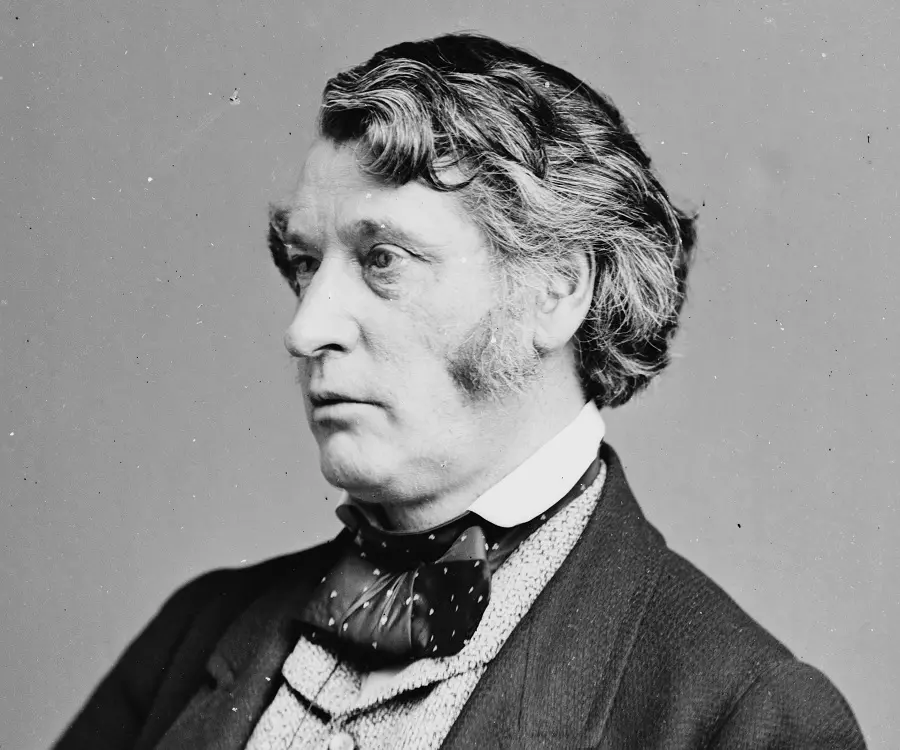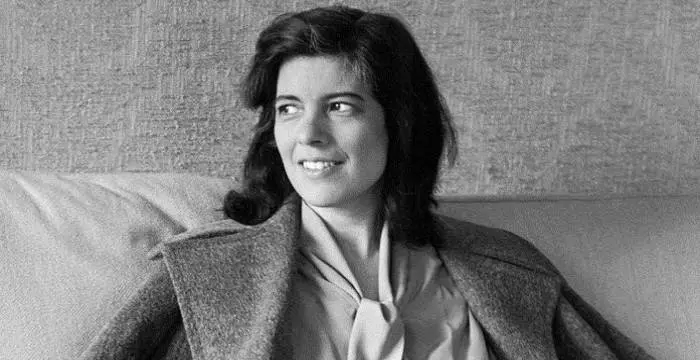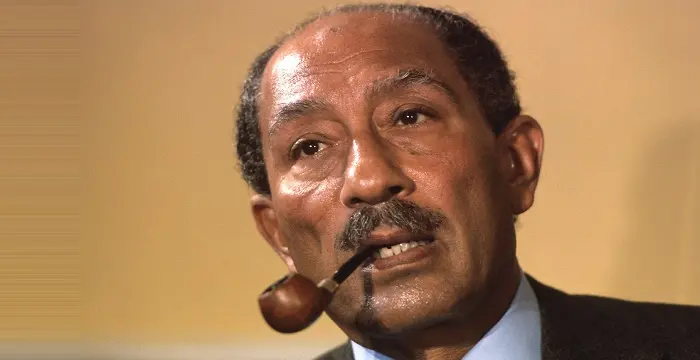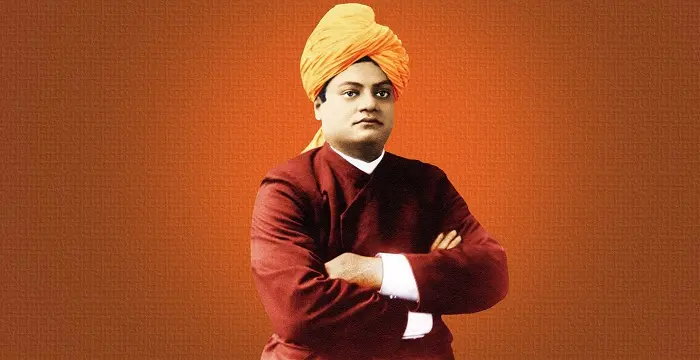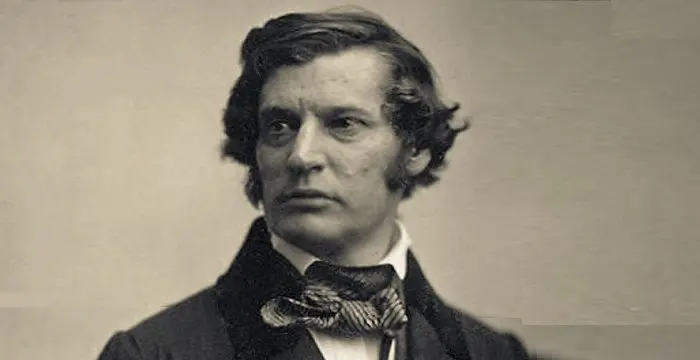
Charles Sumner - Politician, Family and Childhood
Charles Sumner's Personal Details
Charles Sumner was a 19th century American politician who was the leader of the antislavery forces in Massachusetts
| Information | Detail |
|---|---|
| Birthday | January 6, 1811 |
| Died on | March 11, 1874 |
| Nationality | American |
| Famous | Republicans, Harvard University, Leaders, Political Leaders, Politician |
| Ideologies | Republicans |
| City/State | Boston, Massachusetts |
| Spouses | Alice Mason Hooper |
| Universities |
|
| Notable Alumnis |
|
| Birth Place | Boston |
| Political Ideology | Political party - Republican (earlier Whig, Free Soil, Democrat) |
| Gender | Male |
| Sun Sign | Capricorn |
| Born in | Boston |
| Famous as | Politician |
| Died at Age | 63 |
// Famous Politician
Sebastian Coe
Sebastian Coe is a British former track and field athlete turned politician. This biography of Sebastian Coe provides detailed information about his childhood, life, achievements, works & timeline.
Stephen Lewis
Stephen Lewis is a Canadian politician, broadcaster, diplomat and professor. This biography profiles his childhood, career, works, life, achievements and timeline.
Oswald Mosley
Sir Oswald Ernald Mosley was a British politician known for his pro-fascist beliefs. This biography profiles his childhood, family, personal life, opinions, career, etc.
Charles Sumner's photo
Who is Charles Sumner?
Charles Sumner was a 19th century American politician who was the leader of the antislavery forces in Massachusetts. A powerful orator with strong anti-slavery sentiments, he was one of the leaders of the Radical Republicans in the United Senate during the American Civil War. A professionally qualified lawyer dedicated to the concept of human equality, he campaigned for many causes including prison reform, world peace, and educational reforms in addition to supporting the anti-slavery movement. Born as the son of a liberal lawyer in Boston, young Charles was inspired by his father who proposed racially integrated schools and believed that everyone irrespective of their race should be accorded equal rights. Sumner received a good education and went on to graduate from the prestigious Harvard Law School. Once on a visit to Europe he observed that blacks and whites lived together in an integrated society unlike in America. This inspired him to become an abolitionist upon his return to his homeland. He entered politics and became a leader of the anti-slavery forces in the Senate. During the Civil War he pushed for the legal abolition of slavery and during Reconstruction he introduced the bill that eventually became (after his death) the Civil Rights Act of 1875.
// Famous Political Leaders
Edi Rama
Edi Rama is the current Prime Minister of Albania. Check out this biography to know about his childhood, life, achievements, works & timeline.
Khalifa bin Zayed Al Nahyan
Sheikh Khalifa bin Zayed Al Nahyan is the current President of the United Arab Emirates (UAE). Check out this biography to know about his birthday, childhood, family life, achievements and fun facts about him.
Leo Varadkar
Cam Leo Varadkar is the current Taoiseach—the Prime Minister—of the Republic of Ireland. Check out this biography to know about his childhood, family life, achievements and other facts about his life.
Childhood & Early Life
Charles Sumner was born in Boston on January 6, 1811, to Charles Pinckney Sumner and his wife. His father was a liberal Harvard-educated lawyer, abolitionist, and early proponent of racially integrated schools. His family was a middle-class one.
He went to the Boston Latin School, where he befriended Robert Charles Winthrop, James Freeman Clarke, and Samuel Francis Smith; all of whom would one day grow up to be famous men in their own rights.
After school, he studied at the Harvard College, graduating in 1830 following which he went to the Harvard Law School. He was admitted to the bar in 1834.
Career
He entered into a partnership with George Stillman Hillard and started their private law practice. He also lectured at Harvard Law School from 1836 to 1837.
Sumner traveled to Europe in 1837 and began studying French in Paris. There he observed that black people interacted freely with the whites and this openness of the European society made him realize how rampant racism was in the United States.
He returned to the U.S. in 1840 and continued lecturing at Harvard Law School, editing court reports, and contributing to law journals.
He ventured into the political scenario in 1845 when the Mexican–American War was going on. He delivered an Independence Day oration on "The True Grandeur of Nations" in Boston, denouncing the use of war for settling international disputes and promoted arbitration in its place. His excellent speech ensured that he became a much sought after speaker on public affairs.
In 1851, a Democratic-Free-Soil coalition in the Massachusetts legislature named him the United States Senator from Massachusetts. He became very active in the anti-slavery movement and delivered his first major speech, "Freedom National; Slavery Sectional" in 1852 in which he attacked the 1850 Fugitive Slave Act.
He became a leader of the anti-slavery forces in the Senate. In 1856, debates on slavery in Kansas were going on and he delivered a two-day oration, “The Crime against Kansas”, in which he strongly condemned Southern advocacy of the expansion of slavery.
During the speech he specifically denounced the Kansas–Nebraska Act, and verbally attacked authors of the Act - Democratic Senators Stephen A. Douglas of Illinois and Andrew Butler of South Carolina.
Butler's cousin, Representative Preston Brooks, was infuriated by Sumner’s speech and decided to “punish” him. He, accompanied by a few of his friends, brutally beat up Sumner with a cane on May 22 1856, repeatedly hitting him on the head and other parts of the body.
The caning of Sumner shocked the public and he was proclaimed a hero in the South for defending Southern honor. Even though he survived, Charles Sumner had suffered very severe head injuries and spent months convalescing. He was re-elected to his constituency in November 1856 even though he was not in a position to resume his duties, it was believed that his vacant chair in the Senate chamber served as a powerful symbol of free speech and resistance to slavery.
On his doctor’s advice, Sumner toured several countries, spending time in France, Germany and Scotland. Because of the trauma he suffered as a result of his attack, he was forced to refrain from work for a few years.
Sumner finally returned to the Senate in 1859. He served as the chairman of the Senate Foreign Relations Committee from March 1861 to March 1871. During his travels in Europe, he had formed acquaintanceships with prominent Englishmen such as Richard Cobden, John Bright, and William Ewart Gladstone, which had helped him gain deep knowledge of international affairs and thus aided him greatly in this role.
During the American Civil War, he pushed for the liberation of the slaves and introduced the Thirteenth Amendment to the Senate in 1864. After the war he supported the policies of the Radical Republicans and harshly criticized President Johnson’s Reconstruction policies and became an early and constant exponent of his impeachment.
He remained a champion of civil rights for blacks till the very end of his life. He co-authored and introduced the bill which was ultimately passed as the Civil Rights Act of 1875 months after his death. . It was the last civil rights legislation for 82 years until the passage of the Civil Rights Act of 1957.
Major Works
Charles Sumner was the leader of the antislavery forces in Massachusetts, noted for being a very vocal champion of civil rights for blacks. A powerful orator, he gave many hard hitting speeches including the “Crime against Kansas" speech in 1856 during the Bleeding Kansas crisis.
He co-authored what was eventually passed as the Civil Rights Act of 1875, working alongside John Mercer Langston, a prominent African American who established the law department at Howard University. Sumner had started work on the Act in the early 1870s but did not live to see its eventual enactment.
Personal Life & Legacy
He married Alice Mason Hooper, the widowed daughter-in-law of Massachusetts Representative Samuel Hooper, in 1866. The marriage was unhappy and ended in a divorce in 1873.
Charles Sumner died of a heart attack at his home in Washington, D.C., on March 11, 1874.
Several educational institutions are named in his honor; these include Charles Sumner High School in St. Louis, Missouri, Charles Sumner Elementary School in Roslindale, Massachusetts, and Charles Sumner School and museum in Washington.
// Famous Harvard University
Bertil Gotthard Ohlin
Bertil Gotthard Ohlin was a famous Swedish economist. This biography profiles his childhood, family life & achievements.
Xi Mingze
Xi Mingze is the daughter of Chinese Leader Xi Jinping, Check out this biography to know about her birthday, childhood, family life, achievements and fun facts about her.
Susan Sontag
Susan Sontag is an American critical essayist, cultural analyst, novelist, political activist, filmmaker and playwright of international repute. Read on to find out more about her childhood, career, profile and timeline.
Charles Sumner biography timelines
- // 6th Jan 1811Charles Sumner was born in Boston on January 6, 1811, to Charles Pinckney Sumner and his wife. His father was a liberal Harvard-educated lawyer, abolitionist, and early proponent of racially integrated schools. His family was a middle-class one.
- // 1830 To 1834After school, he studied at the Harvard College, graduating in 1830 following which he went to the Harvard Law School. He was admitted to the bar in 1834.
- // 1836 To 1837He entered into a partnership with George Stillman Hillard and started their private law practice. He also lectured at Harvard Law School from 1836 to 1837.
- // 1837Sumner traveled to Europe in 1837 and began studying French in Paris. There he observed that black people interacted freely with the whites and this openness of the European society made him realize how rampant racism was in the United States.
- // 1840He returned to the U.S. in 1840 and continued lecturing at Harvard Law School, editing court reports, and contributing to law journals.
- // 1845He ventured into the political scenario in 1845 when the Mexican–American War was going on. He delivered an Independence Day oration on "The True Grandeur of Nations" in Boston, denouncing the use of war for settling international disputes and promoted arbitration in its place. His excellent speech ensured that he became a much sought after speaker on public affairs.
- // 1851In 1851, a Democratic-Free-Soil coalition in the Massachusetts legislature named him the United States Senator from Massachusetts. He became very active in the anti-slavery movement and delivered his first major speech, "Freedom National; Slavery Sectional" in 1852 in which he attacked the 1850 Fugitive Slave Act.
- // 1856He became a leader of the anti-slavery forces in the Senate. In 1856, debates on slavery in Kansas were going on and he delivered a two-day oration, “The Crime against Kansas”, in which he strongly condemned Southern advocacy of the expansion of slavery.
- // 1856Charles Sumner was the leader of the antislavery forces in Massachusetts, noted for being a very vocal champion of civil rights for blacks. A powerful orator, he gave many hard hitting speeches including the “Crime against Kansas" speech in 1856 during the Bleeding Kansas crisis.
- // 22nd May 1856Butler's cousin, Representative Preston Brooks, was infuriated by Sumner’s speech and decided to “punish” him. He, accompanied by a few of his friends, brutally beat up Sumner with a cane on May 22 1856, repeatedly hitting him on the head and other parts of the body.
- // Nov 1856The caning of Sumner shocked the public and he was proclaimed a hero in the South for defending Southern honor. Even though he survived, Charles Sumner had suffered very severe head injuries and spent months convalescing. He was re-elected to his constituency in November 1856 even though he was not in a position to resume his duties, it was believed that his vacant chair in the Senate chamber served as a powerful symbol of free speech and resistance to slavery.
- // 1859Sumner finally returned to the Senate in 1859. He served as the chairman of the Senate Foreign Relations Committee from March 1861 to March 1871. During his travels in Europe, he had formed acquaintanceships with prominent Englishmen such as Richard Cobden, John Bright, and William Ewart Gladstone, which had helped him gain deep knowledge of international affairs and thus aided him greatly in this role.
- // 1864During the American Civil War, he pushed for the liberation of the slaves and introduced the Thirteenth Amendment to the Senate in 1864. After the war he supported the policies of the Radical Republicans and harshly criticized President Johnson’s Reconstruction policies and became an early and constant exponent of his impeachment.
- // 1866 To 1873He married Alice Mason Hooper, the widowed daughter-in-law of Massachusetts Representative Samuel Hooper, in 1866. The marriage was unhappy and ended in a divorce in 1873.
- // 11th Mar 1874Charles Sumner died of a heart attack at his home in Washington, D.C., on March 11, 1874.
// Famous Leaders
Edi Rama
Edi Rama is the current Prime Minister of Albania. Check out this biography to know about his childhood, life, achievements, works & timeline.
Tecumseh
Tecumseh was a Native American leader of the Shawnee clan. This biography profiles his childhood, life and timeline.
Khalifa bin Zayed Al Nahyan
Sheikh Khalifa bin Zayed Al Nahyan is the current President of the United Arab Emirates (UAE). Check out this biography to know about his birthday, childhood, family life, achievements and fun facts about him.
Anwar Sadat
Anwar Sadat was the third President of Egypt and has been awarded the Nobel Prize for his peace initiatives. To know more about his childhood, career, profile and timeline read on the following biography.
Leo Varadkar
Cam Leo Varadkar is the current Taoiseach—the Prime Minister—of the Republic of Ireland. Check out this biography to know about his childhood, family life, achievements and other facts about his life.
Swami Vivekananda
Swami Vivekananda was the chief disciple of Sri Ramakrishna, and was responsible for awakening India spiritually. Check this biography to know in detail about his life, profile and timeline.
Charles Sumner's FAQ
What is Charles Sumner birthday?
Charles Sumner was born at 1811-01-06
When was Charles Sumner died?
Charles Sumner was died at 1874-03-11
Where was Charles Sumner died?
Charles Sumner was died in Washington, D.C.
Which age was Charles Sumner died?
Charles Sumner was died at age 63
Where is Charles Sumner's birth place?
Charles Sumner was born in Boston
What is Charles Sumner nationalities?
Charles Sumner's nationalities is American
What is Charles Sumner ideologies?
Charles Sumner's ideologies is Republicans
Who is Charles Sumner spouses?
Charles Sumner's spouses is Alice Mason Hooper
What was Charles Sumner universities?
Charles Sumner studied at Harvard University, Harvard University, Harvard Law School, Boston Latin School
What was Charles Sumner notable alumnis?
Charles Sumner's notable alumnis is Harvard University
What is Charles Sumner's political ideology?
Charles Sumner's political ideology is Political party - Republican (earlier Whig, Free Soil, Democrat)
What is Charles Sumner's sun sign?
Charles Sumner is Capricorn
How famous is Charles Sumner?
Charles Sumner is famouse as Politician

